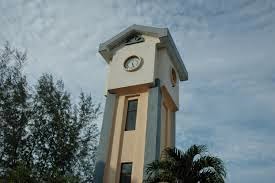Introduction
This
2-days class introduces basic principles, techniques, and equipment for the
most commonly-used physical and analytical tests on polymeric materials, in
mechanical properties
Target Group
Technicians, shop foremen,
technical liaisons, professionals new to testing and anyone who needs knowledge
of test methods.
Prerequisites
Participants attending this course must have basic
knowledge about plastic material or process.
Objectives
Upon completion of the
course, the participants should be able to:
Ø Identify the type of materials use.
Ø Use proper and safe procedure when do testing
Ø Evaluate and analyse the result of testing
Course contents
1.
General
Basic Polymer Structure & Explanation of Terms
ASTM Standards
Basic Polymer Structure & Explanation of Terms
ASTM Standards
2. Mechanical
Properties
Tensile Test - determine the tensile properties of polymers, such as tensile strength, elongation at break and Young Modulus
Tensile Test - determine the tensile properties of polymers, such as tensile strength, elongation at break and Young Modulus
3. Impact
Test - determine resistance of plastic to pendulum-type hammers, in breaking
standard specimens with one pendulum swing
4. Hardness
Test - is the property of a material that enables it to resist plastic
deformation, usually by penetration. However, the term hardness may also refer
to resistance to bending, scratching, abrasion or cutting.
5. Free
Falling Test (Dart Drop) - determine
a material's impact strength are the falling dart and drop dart tests. To
determine the force of impact, multiply
the mass of the dart by the height of the fall.
6. Thermal
Properties
Melt
Flow Index – measure of the ease of flow of the melt of a thermoplastic
polymer.
7. Vicat
Softening Point – is the determination of the softening point for materials
that have no definite melting point, such as plastics.
Training Method
Training will be delivered
through a combination between the orentical talk, demonstration and practical
lessons.
Course
Instructor
The instructor for this
course is Mr Badaruddin Bin Md Yunus who is a senior instructor at ILP Jitra.
Mr Badaruddin has 25 years experience in plastic technology. He graduated from
Universiti Teknologi Malaysia (UTM) in 1985 with a Diploma in Mechanical
Engineering. He also has a Diploma in Plastic Engineering Technology from
Northern Alberta Institute of Technology (NAIT), Canada.
Mr Badaruddin has taught many courses on plastic technology to both local and international participants. His expertise is recognized by the Department of Skill Development (DSD) where Mr Badaruddin frequently take parts in syllabus and material development sessions organized by DSD for plastic technology programs.
Schedule
Day 1
08:30 a.m. Registration
08:30 a.m. Registration
09.00 a.m Tensile Test
10:00
a.m. Impact
Test
11:30 a.m. Melt Flow Index Test
11:30 a.m. Melt Flow Index Test
01:00 p.m. Lunch
02:00 p.m. Practical on Tensile Test , Impact Test & MFI Test
02:00 p.m. Practical on Tensile Test , Impact Test & MFI Test
05:30
p.m. End of
day 1
Day 2
08:30 a.m. Hardness Test
08:30 a.m. Hardness Test
10:00
a.m. Dart Drop
Test
11:30 a.m. Vicat Softening Point Test
11:30 a.m. Vicat Softening Point Test
01:00
p.m. Lunch
02:00 p.m. Practical on Hardness Test, Dart Drop Test & Vicat
02:00 p.m. Practical on Hardness Test, Dart Drop Test & Vicat
Softening Point, Review, Question & Answer
05:30 p.m. Closing ceremony
Contact Person
To obtain more information regarding this course,
please contact Corporate and Lifelong Learning Section. (04- 9161926 ext 161 or
162). You can also send enquiries by email to bklh@ilpjitra.gov.my
Fees
Companies sending their employees to this course may apply for reimbursement from HRDF under the SBL scheme.
Companies sending their employees to this course may apply for reimbursement from HRDF under the SBL scheme.









love this type posts keep this type of posts. lovely work keep this work up.
ReplyDeleteLed Tv repairing course
Led Tv repairing course
Led Tv repairing course